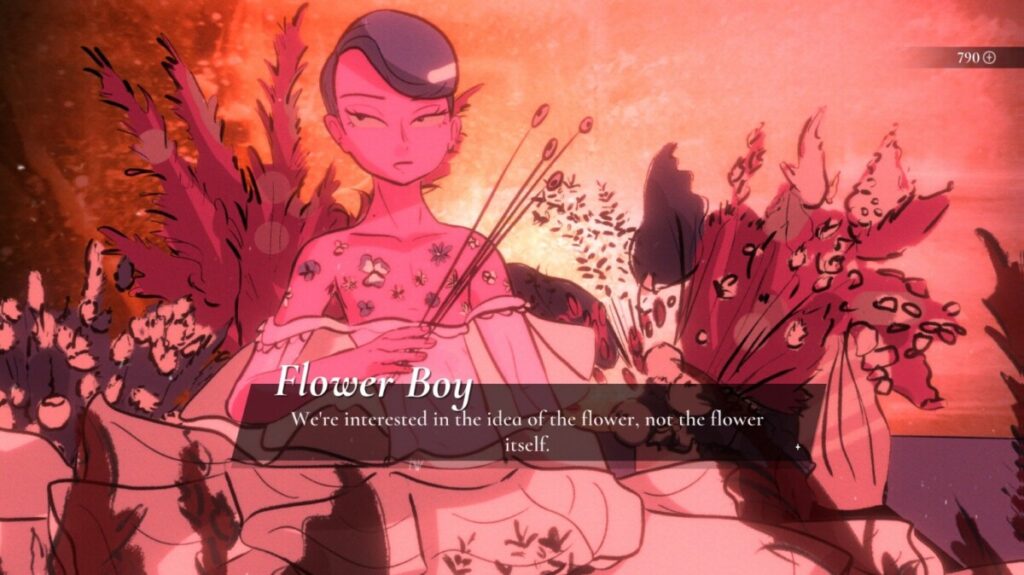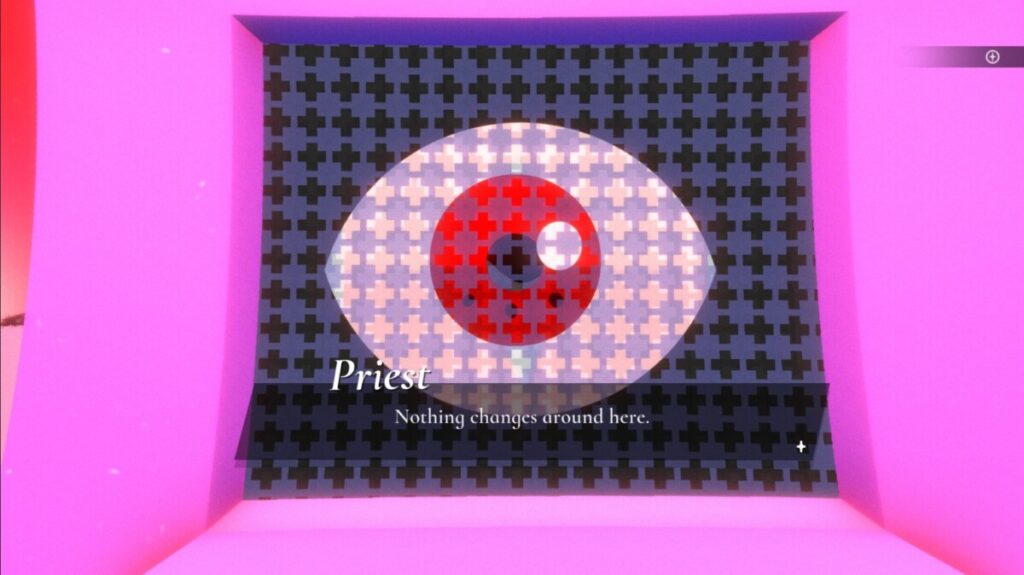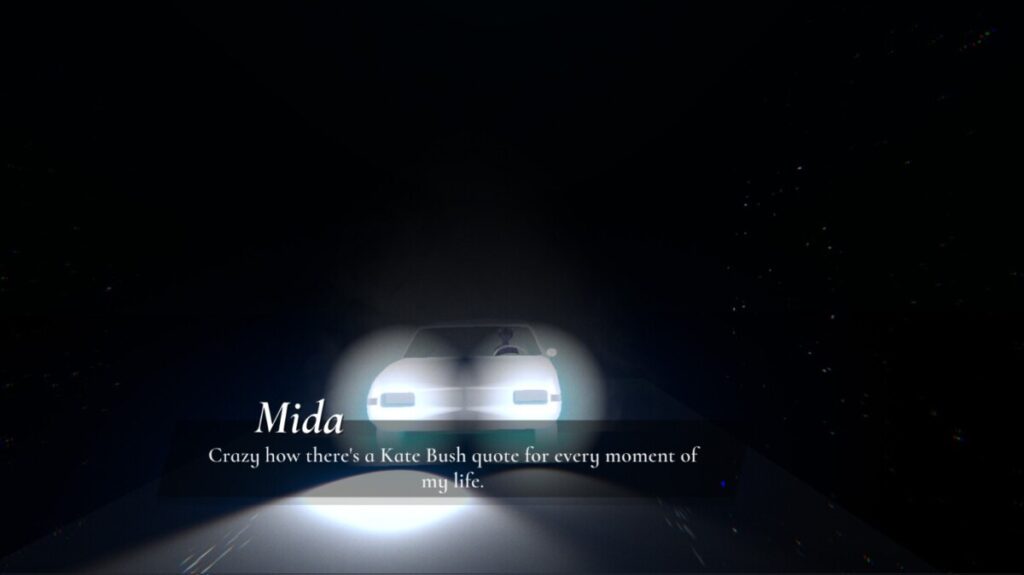Mediterranea Inferno, the latest game from Milky Way Prince developers Eyeguys and Italian publishers Santa Ragione, is a gay video game and horror visual novel about the worst gay twinks in Europe trying to have a post-covid-lockdown vacation and reclaim their lost youth. It is also a psychic, surrealistic attack on the player, the world, and the human experience as a whole—and, believe it or not, everything I’ve said up until this point is a compliment.

Mediterranea Inferno weaves beauty and terror together so often that they become one and the same.
After The World Ended…
At the macro level, Mediterranea Inferno is a game about how Covid changed the world. Three youths—Claudio, Mida, and Andrea, the protagonists of sorts—are, on the surface, worriless gay partiers whose lives, like everyone else during the pandemic, get put on pause as the world threatens to end. The best years of their lives, or at least what should have been the best years of their lives, are shoved indoors, and they become adults in this void of lost time. Now on the other side of the pandemic, they attempt a vacation in Italy as a means of reconnecting and celebrating the return to freedom. But not all is as it seems in the world… or in their hearts.
RELATED: LGBTQ Activists on Campus Want to Cut Through the Media-Trained Bullshit
What follows next, and what makes up the bulk of the game, is a kaleidoscope of candy-coated horrors as the characters are subjected to “Mirages,” psychosomatic hellscapes that simultaneously prey on their anxieties and allow them to revel their inner most desires. To describe in further detail is to spoil, but its here in these moments that the protagonists come to life: all their triumphs and shame laid bare for the player—and their friends—to see and gawk at.
It is also, in function, the heart of the game-play loop. You, the player, control who gets to have a mirage in the limited amount of time a game run allows, which will give both different paths and different endings. Giving replayability to a visual novel is a little difficult, but Mediterranea Inferno does so effortlessly by having such an unparalleled sense of style and a series of vein-bursting things to say.

The impossibly large eye of a priest looks you over.
Addicting Unpleasantness, High Style
Oozing with oppressive style the likes of which only an ambitious, angry indie developer can give, Mediterranea Inferno’s mixture of 3D and 2D, combined with playful and unique sound design, will have an instantaneous effect on even the most stubborn of anti-visual novel gamers. Beyond this being a gay video game, it is an arresting one that defies genre. Seeing it in stills does not do its unique presentation justice. From the bright, neck-breaking pace of its unsettling opening sequence, you will know very quickly whether Mediterranea Inferno‘s method of storytelling—which is largely to grab you by the throat and drag you face-down through the depths of post-Covid trauma—is right for you.
If there is any fault in Mediterranea Inferno, it is merely in its own intentional (but addicting) unpleasantness. This is a raw narrative, boxing at shadows, and its vitriolic cast, while having sympathetic moments, is just exhausting after a certain period of time. This does not undermine the game or its messages, but it is worth pointing out that even in its quietest moments, the boys of Mediterranea Inferno are at an 11, with or without the unhinged nature of the “Mirage” game-play loop.
The game’s characters and story line are intriguing and immersive, violent and visceral. This is a very gay video game with a lot on its mind, and depending upon what path you take, you’ll be assaulted by horror, humor, and the beauty, and ugliness, of ambition. You can say a lot of things about Mediterranea Inferno, but I can’t imagine anyone playing this and having nothing to say. Which, in its own way, is one the highest compliments you can give a game at all.

Even in some of its darkest moments, Mediterranea Inferno’s characters find some small crumb of introspection.
Pros:
- A mesmerizing cast of fearless and flawed gay boys
- Easily one of the best gay video games of 2023
- Some of the most overwhelming sound design of any video game in the genre
- A bold writing style and game-play loop that steals a visceral reaction out of you, whether you want to have one or not
- Great replayability baked naturally into the game-play loop
- Maybe the only take down of 21st century Italy in gaming
- Style, Style, STYLE. IT’S FASHION BABY
- The first game I have ever played that had a character called “The Ketamine Fairy”
- A series of improbable images that never stops escalating in beauty and horror
Cons:
- A locked out fast forward option, while understandable on paper, does get in the way of its game-play loop with certain unavoidable scenes.




